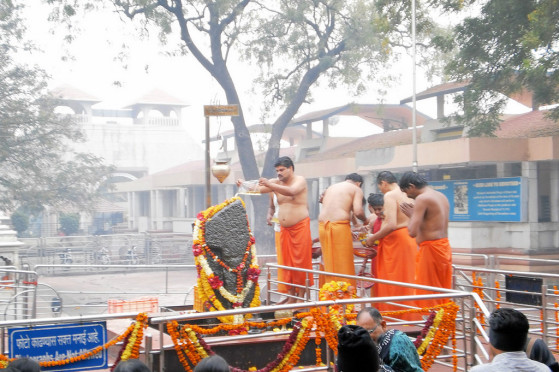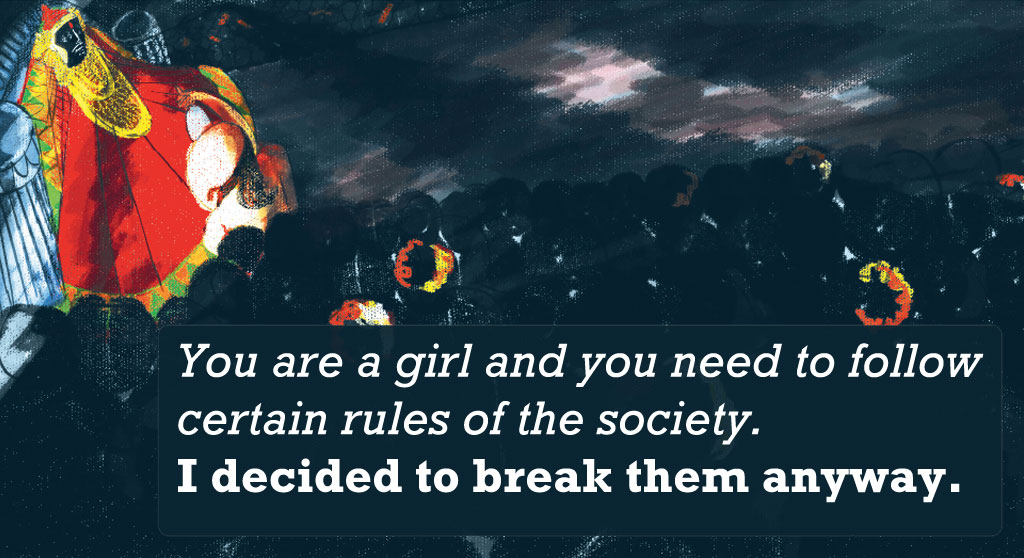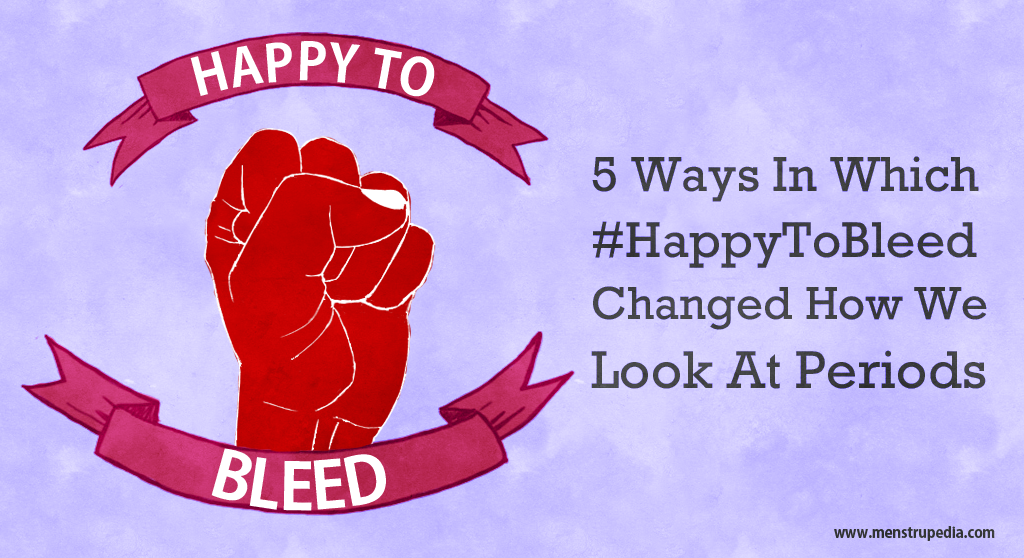Img Source:- www.sumeruparvat.com
Picture this:
It’s 8 AM on a dreadful Monday morning. You elbowed your way past a gazillion uncles, aunties and children at the bus stop and finally managed to grab that one last seat next to the window. You take a deep breath and feel more victorious than Bachendri Pal did when she climbed Mt. Everest. Just when you are revelling in your accomplishment, you notice that several women in the bus are looking at you with mock judgment. Is it your clothes? Is your shirt too transparent? Did you wear the right shoes? Is it your hair? Or, is it that little fluorescent bra strap that is peeking from underneath your shirt? You ponder about it for a moment. If you don’t act soon, the aunty next to you might even, out of the goodness of her heart, tuck that indignant strap back in! You are lucky if you did not hear the stock ramble about how we are all forsaking tradition for modernity.
Maybe the men in the bus did not even notice it one bit. Maybe the conductor simply handed your ticket and whistled his way through the crowds. Maybe the driver just kept his eyes on the road and manoeuvred alongside the traffic. [inlinetweet prefix=”” tweeter=”” suffix=””]But the overly-concerned aunties most definitely noticed and burned you down with their stares.[/inlinetweet] Of course, after five minutes, you forget about the incident and go on with the trials and tribulations of your Monday life.
But let’s zoom out of this scenario a little bit and try to understand what exactly happened between the women. While it is easy to point our fingers at men every time a debate about gender equality comes up, we all agree that there is more than one stakeholder in this argument.
Women are at as much (or more) fault as men are when it comes to these issues. In our mad race for gender equality, we tend to forget that it is not merely men who perpetrate patriarchy. Women, be it in the precincts of their house, in the confines of a bus, or in the meeting room of their glass window offices, could as well be silently, but divisively handing down the myths and practices of patriarchy. Patriarchy is not an obsolete word in the books of history; it is pervasive in the skin of our everyday lives.
In November last year, when 20 year-old Nikita Azad started the #HappyToBleed campaign, there were several women who still questioned the veracity of the movement. There were women who felt this was an unnecessary intervention of no real value. There were some women who felt it was offensive to the religious practices that their male counterparts so devoutly followed. And there were some others who felt that all was okay, as long as it was in the name of tradition and culture. [inlinetweet prefix=”” tweeter=”” suffix=””]Like someone wise once said, all is fair in love and war. Oops! They forgot to add religion to this list![/inlinetweet]
Having internalized the notion that men and women are different, and hence unequal, women often engage in this kind of behaviour that put down members of their own kind. Talking about internalized notions of patriarchy, another incident is noteworthy. Again, in November last year, a temple dedicated to Shani, in Shani Shinghnapur (Maharashtra) was the centre of the debate after a woman dared to enter one of the shrines. After this, the temple authorities performed one cleansing ritual after another in a bid to wash away the impurity that a woman’s mere presence could have.
As if to placate all the women who had clamored against the said gender discrimination, the trust board of the famous temple had a brainwave. They elected Anita Shetye as a trustee of the board, who, Lo and Behold!, has no problem with the discriminatory practices of the temple. Of course, this was an example of the proverbial ‘kill two birds with one stone’. And here’s how:
One. Should the liberals be joyous that after centuries of waiting, there finally was a woman in the erstwhile all-men arena? Yes. (But no) Thank you for the lovely gesture, but we would rather prefer a bite of actual equality instead of this faux feminism. A woman at the helm is great, but we need someone who believes in the idea of equality to represent us!
Two. Should the conservatives make merry that it was after all a woman with ‘conservative’ leanings, a woman of their own kind who had been offered such a gracious role? Yes, they made merry. But, well…
We recognize this tokenism-riddled gesture of electing a woman on to the board. It is a classic case of shooting the gun from the enemy’s shoulder and we’d be blind to not see through this act of apparent inclusivity. After all, Ms. Shetye hasn’t proven her intentions towards the cause of women’s rights to pray in the Shani Temple like men and we have no reason to believe that she can be the harbinger of change in this age-old tradition.
Women like Ms. Shetye, who consent to gender discrimination in the name of religion, tradition and culture are quietly, but strongly proliferating ideas that are harmful to the thriving of a more equal society.
As if to illustrate our argument further, here’s more evidence: This 26 January, alongside celebrating Republic Day, 400 women of the NGO, Bahumata Brigade have vociferously decided to storm the premises of the same shrine and break the ancient custom. In retaliation, the right-wing outfit Hindu Janjagriti Samiti (HJS) has already brought together 2000 women from its women’s wing, Rangragini to physically stop the women from entering the temple premises.
It’s a curious case of men pitting women against each other to battle it out. In a way that mimics the glitzy sexist formula of every Hindi soap that is being aired on television these days, drama accentuates when you put women with polar opposite personalities (read modern vs. traditional) in the same room.
There is no easy answer to this tradition-infused quagmire. Though we are glad that a woman has been offered a position of power, it would be justified if the power is utilized in the direction of making changes that would actually empower women. [inlinetweet prefix=”” tweeter=”” suffix=””]We dream of a world where our bodies are not used as an instrument to discriminate against us in the name of religion, culture and tradition.[/inlinetweet] We have borne this burden on our backs for centuries now. Maybe you could lend a helping hand or two, eh?
References:
http://www.huffingtonpost.in/2016/01/16/shani-shingnapur-protest_n_8995904.html
Author: Sharmad a Shastry
a Shastry
Sharmada is a reclusive writer and poet from Bengaluru. She is the official period scoop connoisseur for Menstrupedia and works with Pasand on menstrual and reproductive health. You can drop her an e-mail at [email protected]








